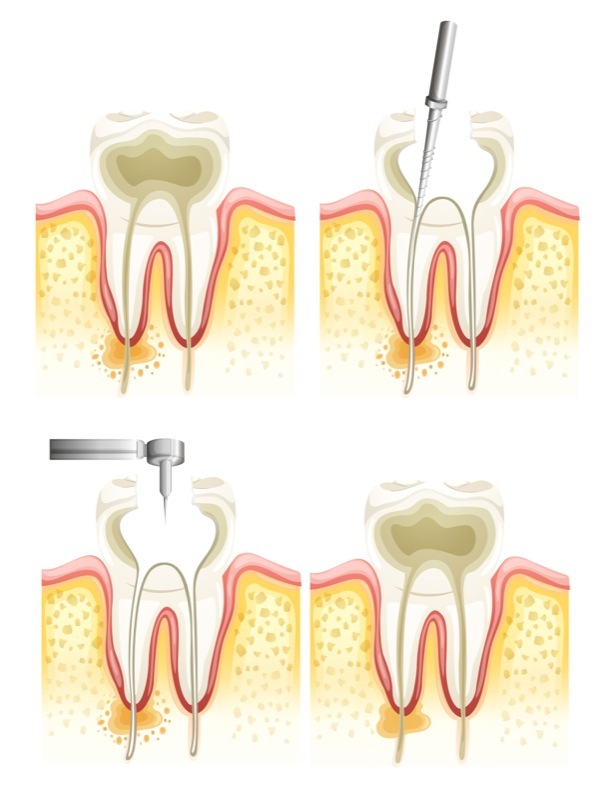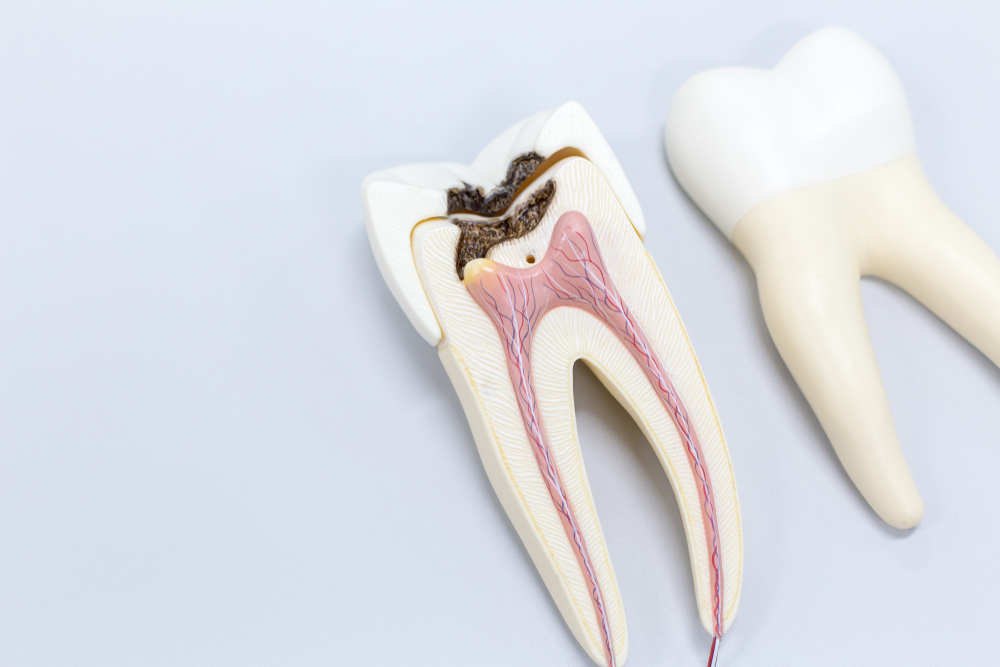Root Canal
An abscessed tooth has an infection that can only be removed by extracting the tooth or performing root canal treatment. Root canal treatment is a dental procedure designed to remove infection from the soft center of a tooth and save the rest of the tooth.
Why would someone need root canal treatment?

Some toothaches or gum pain are actually symptoms of an infection inside a tooth, called an abscess. Tooth decay and trauma can break through the hard outer layers of a tooth, exposing the inner tooth to bacteria and infection. If there is infection in the soft center of a tooth, it has to be stopped from spreading to the gums and the rest of the mouth. A spreading infection can cause damage to other teeth, your gums and jawbone, and even spread through your body. Root canal treatment removes the infection and saves the rest of the tooth.
What is a root canal?
Root canals are actually specific parts of a tooth, but usually the term, “root canal” refers to a common dental treatment designed to save a tooth. The crown of the tooth, the part you see above the gum, has a soft center filled with blood vessels and nerves. These nerves and blood vessels also run through the tooth roots, down to the gums, inside thin tunnels known as root canals. When these nerves, blood vessels and other soft tissue get infected, a condition called an abscessed tooth, infection and bacteria can travel through the root canals down to the gums. To stop the spread of infection without extracting the tooth, Dr. Schmidt performs a root canal treatment. The soft tissue is all removed, and the hard tissue of the tooth is cleaned and filled. The procedure is very common and can be done with minimal discomfort. Since the procedure actually saves much of the original tooth structure, it is a better, healthier option for the patient than having the tooth extracted.
What can I expect from the root canal procedure?
Root canals have really gotten a bad reputation, but for many people the procedure is not much more complicated than having a cavity filled. Dr. Schmidt may perform root canal treatment right in the office, or refer you to a specialist, called an endodontist. In any event, the treatment can be done quickly and comfortably.
• Before anything else is done, Dr. Schmidt will make sure that you are completely comfortable with local anesthetics that numb the area around the affected tooth. If local anesthetics are not enough to make you comfortable, or of you have trouble getting numb, ask Dr. Schmidt about sedation dentistry.
• Dr. Schmidt will create an opening in the hard surface of the tooth, and use special tools to clean out the soft tissue, the nerves and any bacteria or infection.
• Once all the soft tissue has been removed, all the empty spaces, including the root canals, will be filled with special filling material to keep out any future infection. Dr. Schmidt may wait a week to be certain the infection has been eliminated before permanently filling the tooth. If this is the case, temporary filling will close the tooth until the next appointment, the following week, when the tooth is permanently filled and closed.
• After root canal treatment, the tooth will be more brittle than a “live” tooth, so Dr. Schmidt will fit the tooth with a dental crown. Once the crown has been fitted, there may be some initial tenderness, but the new tooth will soon function and feel just like the original healthy tooth.
 What are my alternatives to root canal treatment?
What are my alternatives to root canal treatment?
If you have an abscessed tooth, the infection must be removed to stop it from spreading. The only alternative to a root canal is extraction of the tooth.
While extraction may seem initially like the least expensive option, Dr. Schmidt will probably recommend replacing the extracted tooth. An extracted tooth that is not replaced can leave a gap that causes problems for the surrounding teeth and potentially affect your bite. If root canal is an option, it may end up being less expensive than extracting and replacing that same tooth with a partial denture, bridge or a dental implant. Ask Dr. Schmidt to explain all the options, and why root canal is recommended.